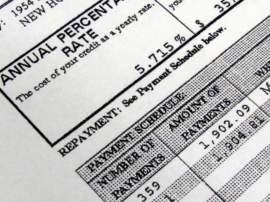
A Comprehensive Guide for Understanding Secured Credit Cards

What are
Secured Credit Cards?
Secured Credit Cards may require the presence of ‘surety’
formulated with the addition of a third party in addition to borrower and the
lender. Surety is defined as a third-party entity responsible for the ultimate
repayment of the credit card balance. In certain cases, a surety may also be
defined as a ‘guarantor’.
In the event
of the Principal’s failure to repay the credit card balance, the responsibility
of repayment will become that of the Surety. Surety loans allow for heightened
insurance for the lender with regard to the reduction of the risk of failure to
satisfy outstanding credit card balances.
Additional Stipulations of Secured Credit Cards
In addition to the notion of surety, the following
stipulations may be applicable to the approval and receipt of Secured Credit
Cards:
Individuals considered to possess a ‘high risk’
with regard to the approval of Secured Credit Cards are determined in
accordance with the lending institution’s analysis of the probability of
repayment latent within the applicant.
Credit Scores and Credit Histories classified as
‘poor’ or ‘low’ are considered to result from a variety of infractions
undertaken with regard to the possession of a credit card. The mention of
defaulted or habitually-late payments and reckless overspending will typically
contribute to a lower credit rating. However, the absence of credit history may
also be perceived as ‘low’ or ‘poor’ credit ratings.
In certain cases, individual applicants will be
required to furnish a deposit prior to the receipt of Secured Credit Cards. A
deposit allows for the alleviation of financial risk absorbed by the lending
institution. In the event that repayment is defaulted or unsatisfied, the
institution will undergo repossession of the deposit.
Unsecured vs. Secured Credit Cards
In contrast to Secured Credit Cards, unsecured
credit cards are synonymous with the traditional definition of a credit card,
which is identified as a method of credit that lacks intrinsic ties or reliance
on preexisting monetary savings. The notion of unsecured credit allows for the
recipient to undergo the spending, exchange, and transfer of monies with regard
to the eventual and implicit repayment of an outstanding balance. Unsecured
credit cards are generally viewed as loans.
Secured Credit Card Application Process
Upon applying for Secured Credit Cards, both the
credit score, as well as the credit history, belonging to the individual
applicant will undergo analysis and assessment from the applicable lending
institution. The following may be applicable to the approval process of a
Secured Credit Card:
Annual Percentage Rate (APR) for Secured Credit
Cards
The Annual Percentage Rate is a form of credit
card interest defined as an expressed and established percentage of the gross
balance latent within individual Secured Credit Cards. APR is added to the full
amount of repayment that is required for the satisfaction of outstanding
balances. The APR designated to Secured Credit Cards will typically be higher
than the median APR designated for credit cards issued to those with higher
credit scores.
Credit Limits for Secured Credit Cards
Credit limits for Secured Credit Cards are finite,
monetary amounts of credit that may be undertaken by individuals in possession
of such credit cards. While credit limits designated to Secured Credit Cards
may be significantly lower than limits allowed to individuals in possession of
higher credit scores, prompt repayment and responsible usage will typically
result in increased credit limits.
NEXT: A Comprehensive Guide to Cash Back Credit Cards





















